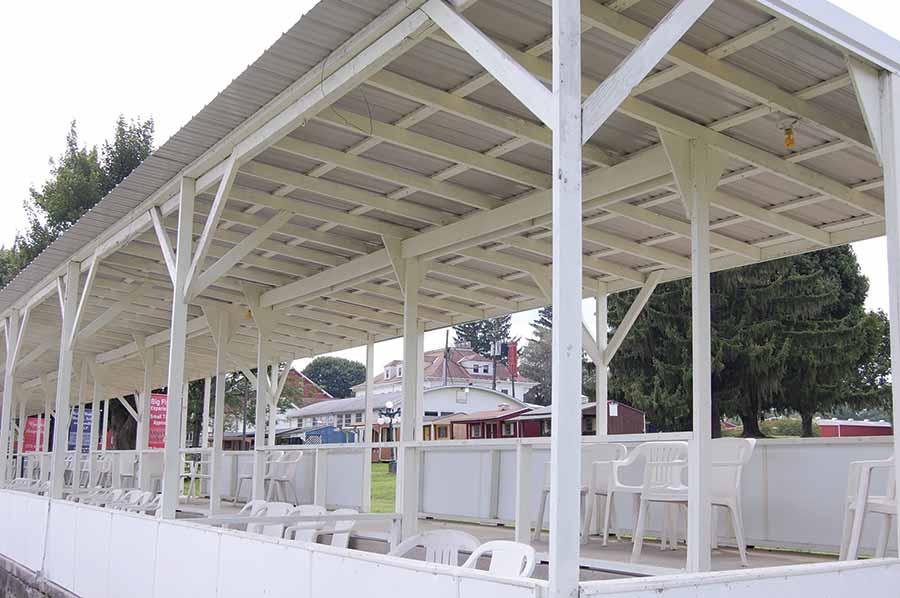
“My great-grandfather was a founding member. My mother rode with the Dixons. I grew up riding and showing at Quentin all the way until I went to college,” Alisa Pitt says. Pitt has watched in profound sadness as the fortunes of Lebanon’s Quentin Riding Club have faltered and stumbled toward bankruptcy. “I decided to do everything in my power,” to save Quentin, she said, “and if I failed at least I had tried.”
Last September it looked as if Quentin was down for the count. The club owed thousands in back taxes and one of the club’s officers even started a Gofundme campaign to raise money. Pitt said that the club had rejected several offers from individuals and groups that offered to pay for new footing or even to buy the club outright. She had made overtures, too.
Riders for whom Quentin is an icon mourned for the club they remembered. They recalled the practice rings, the food, the many shows and the people. Losing Quentin would be like losing important chapters in their childhoods. It was dispiriting.
“There were a lot of club members who were disheartened, and a lot of the equestrians had given up. I had given up,” she says. “A non-horse person pulled me in with the conservation focus. They wanted to do something for the Lebanon community.” So, Pitt agreed to try again to convince Quentin’s board and members that there was a way to preserve the club and honor its storied history. She was motivated in part by the fear of what it could become.
Her message to the denizens of the Quentin Riding Club was direct. “Whatever it is, just don’t let this become a parking lot, or another development in Lebanon County.”
Club members finally agreed to entertain proposals from prospective buyers. Pitt says that one of the people on the proposal committee reached out to club members, urging them to come to the meeting and listen to the plans of prospective buyers. She says the final vote was 38-6 for her group’s plan.
Preserve It Improve it and Protect It
Because the papers have yet to be signed, and the sale is thus not official, Pitt couldn’t discuss the other partners in her group. But she did outline some of their plans.
“Quentin as a private club will be dissolved. The new entity will be establishing a new board and new bylaws and making the facility as available to the public as permitted by zoning.” She says they know they can operate within the current zoning. “Our ultimate goal is to preserve Quentin and its legacy,” she says.
There are a few remaining equestrian grounds in America with private clubs attached, Pitt says. And that’s one of the reasons her group is especially interested in preserving as much of the club’s historic structure as possible.
“Our plan is to highlight its legacy,” she says. The zoning allows for Quentin to offer riding lessons, shows, educational events related to horses, etc. “We do plan on having a restaurant there,” she says. And one of the partners already has several successful restaurant businesses.
“The biggest plan is a boarding facility. We do have a multi-year plan to upgrade the facility,” she says. The footing and grounds need work and Pitt says that her group plans to start small. “We do have another facility and would transition to Quentin.” While Quentin is currently vacant, Pitt has 30 horses boarded at her current facility that would move to Quentin, and there is a waiting list. “We would like to accept boarders and we would certainly have lessons and training available,” she says. But she explains that there is a lot of work to do to ensure there is enough pasture for the horses.
“We’re going to work with the existing pastures and add on. We’re going to improve the footing and then add additional pasture for boarders. We’re not sure how quickly we can upgrade that pasture space to accommodate more boarders.” She says that the number one priority is care. “We’re not going to take somebody on as a boarder and compromise the turnout for the horses. We have to make sure the facility can provide that for the horses we’re boarding.”
“Be Bold, Be Free, Be Truthful”
Pitt grew up riding hunter/jumpers and Dressage. After college, she managed and galloped at a racehorse farm in Maryland. She moved back home to Pennsylvania and started teaching riding. One of her older horses developed laminitis and she eventually lost her beloved horse. But in the process of trying to find ways to help him, she said, she worked with veterinarians as well as some alternative practitioners.
The road from her days in college to today was neither predictable nor straight. But she followed her heart and her curiosity to a destination she probably would not have predicted. She was a professional saddle fitter for County Saddlery, an occupation that she enjoyed. But it entailed so much travel that she didn’t have much time to ride.
“I got burned out by the travel and decided to do what I should have done before, but have no regrets with the knowledge I gained at County,” she says. Pitt immersed herself in equine massage therapy. She has been practicing full time for three years, doing musculoskeletal therapy on performance horses for clients in Pennsylvania and Maryland. She also goes to Wellington and Ocala in winter.
She’s an athlete, a dedicated practitioner and a woman who believes that the essence of life is to be bold, free and truthful. It’s a great omen for the future of Quentin.
Updated February 25. A former version of the article indicated that 30 horses were currently onsite at the Quentin Riding Club.




